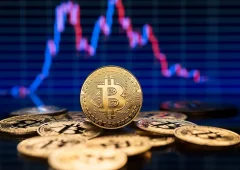White House Dismisses Gold-for-Bitcoin Rumors, Eyes Budget-Neutral Expansion
08.03.2025 16:00 1 min. read Alexander Stefanov
David Sacks, the White House’s top official on crypto policy, clarified that the Trump administration has not considered selling gold reserves to boost its Bitcoin holdings.
While rumors have circulated online, he confirmed that no such discussions have taken place.
Sacks explained that any financial strategies related to the newly established Strategic Bitcoin Reserve would ultimately be decided by the Treasury and Commerce Secretaries. Although they will be exploring budget-neutral ways to expand the reserve, he emphasized that no concrete plans have been made yet.
This statement follows President Trump’s recent executive order creating the Strategic Bitcoin Reserve, which consolidates roughly 200,000 BTC—valued at around $17 billion—acquired through government seizures. The directive tasks the Treasury and Commerce Departments with devising methods to acquire more Bitcoin without increasing costs for taxpayers.
Maintaining budget neutrality is a key priority, as any new government spending would require congressional approval. The administration is also making a clear distinction between Bitcoin and other cryptocurrencies. A senior White House official stated that Bitcoin is uniquely positioned due to its security, decentralization, and lack of a centralized issuer, setting it apart from assets like Ethereum, Solana, XRP, and Cardano.
-
1
BlackRock’s Bitcoin ETF Now Out-Earning Its $624B S&P 500 Fund
03.07.2025 10:00 1 min. read -
2
Market Turmoil, War Fears, and a $70 Million Bet Against Bitcoin: James Wynn’s Stark Warning
21.06.2025 16:00 2 min. read -
3
Strategy’ Michael Saylor Drops Another Cryptic Bitcoin Message
24.06.2025 21:00 1 min. read -
4
‘Nobody Saw This Coming’: Saylor Points to Political Winds Fueling Bitcoin Boom
22.06.2025 10:00 2 min. read -
5
Strategy Adds to Its Bitcoin Pile Again, Shrugging Off Market Slump
23.06.2025 17:00 1 min. read
Bitcoin: Is the Cycle Top In and How to Spot It?
Bitcoin may not have reached its peak in the current market cycle, according to a recent analysis by crypto analytics firm Alphractal.
BlackRock’s IBIT Bitcoin ETF Surpasses 700,000 BTC in Record Time
BlackRock’s iShares Bitcoin Trust (IBIT) has officially crossed the 700,000 BTC mark, reinforcing its position as one of the fastest-growing exchange-traded funds in financial history.
Bitcoin: Historical Trends Point to Likely Upside Movement
Bitcoin may be gearing up for a significant move as its volatility continues to tighten, according to on-chain insights from crypto analyst Axel Adler.
Trump’s Two big Bitcoin Moves: Key Catalysts or Just Noise for BTC Price?
Two major developments are converging in July that could shape the future of Bitcoin in the United States—both tied to President Trump’s administration and its expanding crypto agenda.
-
1
BlackRock’s Bitcoin ETF Now Out-Earning Its $624B S&P 500 Fund
03.07.2025 10:00 1 min. read -
2
Market Turmoil, War Fears, and a $70 Million Bet Against Bitcoin: James Wynn’s Stark Warning
21.06.2025 16:00 2 min. read -
3
Strategy’ Michael Saylor Drops Another Cryptic Bitcoin Message
24.06.2025 21:00 1 min. read -
4
‘Nobody Saw This Coming’: Saylor Points to Political Winds Fueling Bitcoin Boom
22.06.2025 10:00 2 min. read -
5
Strategy Adds to Its Bitcoin Pile Again, Shrugging Off Market Slump
23.06.2025 17:00 1 min. read


